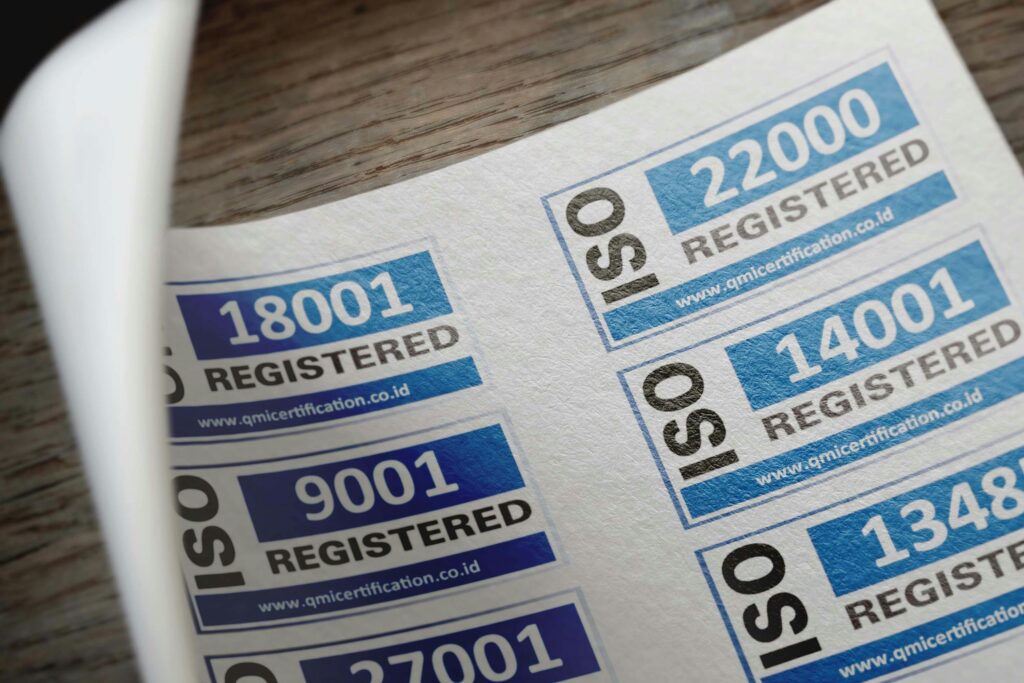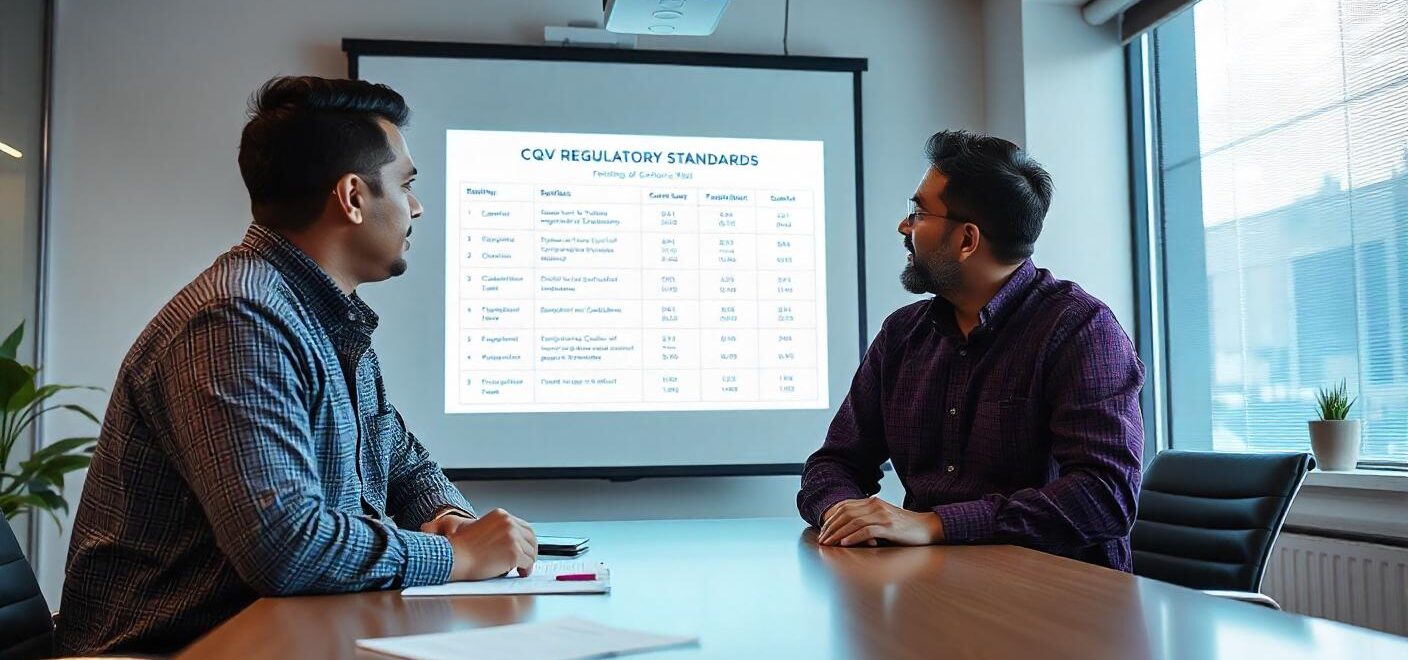Commissioning, Qualification, and Validation (CQV) are crucial steps in ensuring that facilities, equipment, and processes in pharmaceutical and medical device manufacturing meet regulatory requirements. Adhering to recognized industry regulations is not just a regulatory necessity but also a cornerstone for maintaining quality, safety, and efficiency. Understanding these regulations helps organizations streamline their CQV processes, minimize risks, and maintain compliance with global requirements.
This blog explores eight key industry regulations that every CQV professional must know and how integrating these into your processes can significantly enhance your outcomes.
The Importance of Industry Regulations
Industry regulations provide a framework to ensure uniformity, quality, and compliance in manufacturing processes. For CQV, these regulations are instrumental in:
- Maintaining product integrity.
- Meeting stringent regulatory expectations.
- Ensuring efficient and safe operations.
Failure to adhere to these regulations can lead to compliance issues, product recalls, and reputational damage. For organizations in highly regulated industries, understanding and implementing these regulations is non-negotiable.
The 8 Industry Regulations
1. ISO 9001: Quality Management Systems
ISO 9001 provides a robust framework for implementing quality management systems. This internationally recognized standard emphasizes:
- Risk-Based Thinking: ISO 9001 encourages organizations to identify potential risks and opportunities to improve processes and outcomes. This proactive approach aligns seamlessly with CQV processes, where risk assessment is critical.
- Continuous Improvement: By fostering a culture of ongoing enhancement, ISO 9001 ensures that organizations stay adaptive to changing industry demands and maintain high-quality standards over time.
- Customer Satisfaction: Ensuring that customer requirements are met consistently is a core tenet of ISO 9001. In CQV, this translates to delivering validated systems and processes that meet regulatory and client expectations.

For CQV professionals, ISO 9001 serves as a foundation for designing, implementing, and improving quality management systems that support robust validation activities, efficient documentation practices, and effective communication across teams.
2. GMP (Good Manufacturing Practice) Regulations
GMP regulations make sure that products are produced and controlled according to quality standards. These guidelines are needed for::
- Facility Design and Maintenance: GMP emphasizes clean and hygienic conditions, ensuring that facilities are designed to prevent contamination and maintain product integrity.
- Process Validation: It requires thorough validation of manufacturing processes to ensure consistent output meeting predefined specifications.
- Training and Personnel Practices: GMP underscores the importance of skilled and trained personnel, critical for effective CQV implementation.
For CQV, adhering to GMP regulations ensures that all aspects of production align with quality standards, reducing risks and enhancing compliance.
3. ISPE Baseline Guides
The International Society for Pharmaceutical Engineering (ISPE) Baseline Guides provide practical guidance for facility and equipment design to meet industry regulations. Key aspects include:
- Facility Layout: Ensuring proper workflow to minimize cross-contamination and optimize efficiency.
- Commissioning and Qualification Standards: Offering detailed guidelines for the CQV lifecycle, from planning to implementation.
- Documentation Best Practices: Emphasizing accurate and comprehensive documentation to support regulatory compliance.
These guides are invaluable for CQV professionals in designing compliant systems that meet both operational and regulatory requirements.
Read More: 10 Burning Questions on CQV
4. FDA 21 CFR Part 211
This regulation governs drug manufacturing practices in the United States, setting standards for facility qualification, equipment validation, and process control. Highlights include:
- Process Validation: Ensuring consistent and reproducible results through rigorous validation protocols.
- Documentation Requirements: Maintaining detailed records to support regulatory inspections and audits.
- Quality Control: Establishing robust quality control systems to monitor and maintain compliance throughout the manufacturing process.
For CQV professionals, understanding FDA 21 CFR Part 211 is crucial for achieving compliance in pharmaceutical manufacturing.
5. EU Annex 15: Qualification and Validation
Annex 15 of the European Union’s GMP guidelines provides comprehensive requirements for qualification and validation activities. Key points include:
- Risk Management: Annex 15 places significant emphasis on risk assessments to ensure that validation efforts are focused and effective.
- Validation Master Plan (VMP): It requires a detailed VMP outlining the scope, objectives, and approach for validation activities.
- Change Control: Highlighting the importance of managing changes to validated systems and processes to maintain compliance.
Organizations operating in Europe rely on Annex 15 for structured and compliant CQV processes.
6. ICH Q7: Good Manufacturing Practice Guide for APIs
The International Council for Harmonisation’s Q7 guideline focuses on GMP for Active Pharmaceutical Ingredients (APIs). Key aspects include:
- Process Validation for APIs: Emphasizing the importance of validated processes to ensure API quality and consistency.
- Equipment Qualification: Stressing the need for qualified equipment to prevent cross-contamination and ensure consistent performance.
- Material Management: Guidelines for sourcing, storage, and handling of raw materials used in API production.
CQV professionals involved in API manufacturing rely on ICH Q7 to align their practices with international standards.
Read More: 9 Emerging Technologies in the CQV Process
7. ASME BPE: Bioprocessing Equipment Standards
The American Society of Mechanical Engineers (ASME) Bioprocessing Equipment (BPE) standards are essential for designing and constructing equipment for biopharmaceutical manufacturing. These standards cover:
- Hygienic Design: Ensuring that equipment is designed to prevent contamination and facilitate cleaning.
- Material Selection: Specifying materials that are resistant to corrosion and compatible with biopharmaceutical processes.
- Testing and Validation: Providing guidelines for testing equipment performance and validating its suitability for intended use.
For CQV professionals, ASME BPE standards are critical for ensuring that equipment meets stringent bioprocessing requirements.
8. ISO 14644: Cleanrooms and Associated Controlled Environments
ISO 14644 defines standards for cleanroom design, classification, and monitoring. Key elements include:
- Airborne Particle Limits: Establishing limits for particle concentrations in cleanroom environments to ensure product safety.
- Testing Protocols: Providing detailed methods for testing cleanroom performance, including air velocity, filtration, and containment.
- Maintenance and Monitoring: Emphasizing regular monitoring and maintenance to sustain cleanroom performance over time.
Cleanroom validation is a cornerstone of CQV, and ISO 14644 ensures that controlled environments meet stringent cleanliness requirements.
Implementing These Regulations in Your CQV Process
Adhering to these regulations requires meticulous planning and execution. Here are practical steps to ensure successful implementation:

- Conduct a Gap Analysis: Assess your current processes and identify areas where they fall short of industry regulations.
- Develop Comprehensive Documentation: Ensure that all CQV activities are well-documented, including protocols, risk assessments, and validation reports.
- Invest in Training: Equip your team with the knowledge and skills to apply these regulations effectively.
- Leverage Technology: Use digital tools to streamline processes such as data collection, analysis, and reporting.
- Engage Experts: Collaborate with industry professionals or consultants who specialize in CQV and regulatory compliance.
How Incepbio Can Help with CQV Needs
Navigating the complexities of CQV and aligning with multiple industry regulations can be daunting. This is where Incepbio excels. Here’s how we can support your CQV journey:
- Customized Solutions: We tailor our services to meet your specific CQV needs, ensuring alignment with all relevant industry regulations.
- Expert Guidance: Our team of seasoned professionals brings extensive experience in pharmaceutical and medical device manufacturing, offering insights that drive compliance and efficiency.
- State-of-the-Art Tools: We leverage advanced tools and methodologies to streamline CQV processes, from commissioning to validation.
- Regulatory Support: Incepbio stays updated with evolving regulations and helps you stay ahead of compliance requirements.
- Training and Development: We provide training programs to upskill your team, empowering them to handle CQV processes with confidence.
By partnering with Incepbio, you gain a trusted ally dedicated to ensuring the success of your CQV initiatives.
Read More: 7 Tips to Train Your Team Better on Compliance
Conclusion
Mastering CQV requires a deep understanding of the industry regulations that govern manufacturing processes. ISO 9001, GMP, ISPE Baseline Guides, FDA 21 CFR Part 211, EU Annex 15, ICH Q7, ASME BPE, and ISO 14644 form the foundation for achieving compliance and operational excellence. By incorporating these regulations into your CQV strategy, you not only ensure compliance but also foster a culture of quality and innovation.
With Incepbio by your side, navigating the complexities of CQV becomes seamless. Contact us today to discover how we can elevate your CQV processes to meet and exceed industry expectations.
Authors
-

Shubhankar is a pharmaceutical professional with over 10 + years of experience in Drug Substance (Upstream), Aseptic Batch Manufacturing (Drug Product), Process Validation, and CQV (Commissioning, Qualification, and Validation). He is skilled in managing the qualification and implementation of protocols for URS, DQ, FAT, SAT, IQ, OQ, and PQ for new equipment. Holds sounds knowledge of CSV (Computer System Validation) in compliance with 21 CFR 210/211, 21 CFR Part 11, and European regulations. Shubhankar is experienced in creating cGMP-oriented documentation, including SOPs, BPRs, Calibration Records, and deviation investigations. Expertise in overseeing various validation activities, such as HVAC, Utility, and Process Equipment Validation.
View all posts -

Arjun Jha has over 8 years of experience in tech startups, business strategy, and digital and traditional marketing. He’s helped many startups grow by using creative strategies and a deep understanding of the market. Outside of work, Arjun enjoys reading about business, philosophy, psychology, and spirituality, which inspires his unique approach to problem-solving and growth.
View all posts -

An experienced SEO professional, Adithya is someone fascinated by the art of content creation. He has published over 700 articles under his name. Additionally, he has worked for companies like TCS, Essentially Sports, and holds expertise in the field of digital marketing
View all posts






